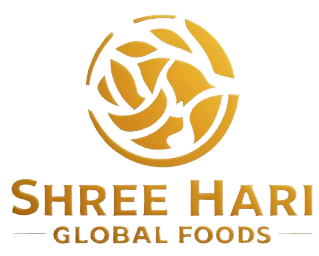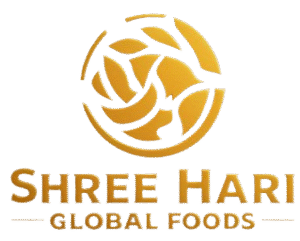The concept of a circular economy is gaining momentum as industries across the globe seek sustainable solutions to reduce waste and environmental impact. In agriculture, where post-harvest losses and resource inefficiency are rampant, adopting circular practices is not just beneficial but essential. At Shree Hari Global Foods, sustainability is woven into every aspect of our operations. From product design to community engagement, we are building a circular economy that benefits both people and the planet.
Traditional agricultural processing methods often follow a linear model — harvest, process, consume, and discard. This approach leads to significant food waste, energy consumption, and environmental degradation. Post-harvest losses alone account for a substantial percentage of total agricultural produce, causing economic losses for farmers and contributing to food insecurity.
Our solar drying technology offers a sustainable alternative that aligns perfectly with the principles of a circular economy. By utilizing solar energy, our dryers eliminate the need for fossil fuels, reducing greenhouse gas emissions and operational costs. The controlled drying process ensures minimal wastage, as surplus and perishable produce can be preserved and processed into shelf-stable products.
One of the key pillars of our sustainability strategy is material efficiency. Our solar dryers are constructed using eco-friendly materials that are durable and recyclable. We continuously innovate to enhance the energy efficiency of our systems, incorporating automation features that optimize resource usage without compromising product quality.
Packaging is another area where we actively implement circular practices. We advocate for the use of biodegradable and recyclable packaging materials that reduce environmental impact. Our packaging solutions are designed to maintain product integrity while supporting eco-friendly disposal or reuse.
Beyond product-level innovations, we are committed to fostering sustainable practices within farming communities. Our training programs emphasize resource optimization, waste management, and eco-friendly agricultural practices. By educating farmers and SHGs on sustainable production methods, we ensure that the impact of our technology extends beyond immediate economic gains.
Our collaborations with self-help groups and cooperatives are pivotal in promoting local, circular economies. By enabling SHGs to process and sell their products within their regions, we reduce the carbon footprint associated with transportation and supply chains. This localized model not only supports sustainability but also strengthens community resilience.
Additionally, our buy-back initiatives create a closed-loop system where processed products are re-integrated into value chains, ensuring minimal waste and maximum utilization of agricultural produce. This approach fosters economic inclusivity while maintaining environmental responsibility.
At Shree Hari Global Foods, we view sustainability as a continuous journey rather than a one-time goal. Our in-house R&D team is dedicated to exploring new materials, improving drying techniques, and enhancing automation to further reduce our environmental footprint. We actively seek partnerships with eco-conscious organizations and participate in sustainability forums to stay ahead of the curve.
Building a circular economy in agriculture requires collective effort and a shared vision for a greener future. Our commitment goes beyond business; it is about creating systems that nurture the environment while empowering the people who rely on it.
Sustainability in action is what drives us. Every solar dryer installed, every SHG empowered, and every kilogram of produce saved is a step towards a circular, sustainable agricultural ecosystem. At Shree Hari Global Foods, we are proud to be part of this transformative journey.

